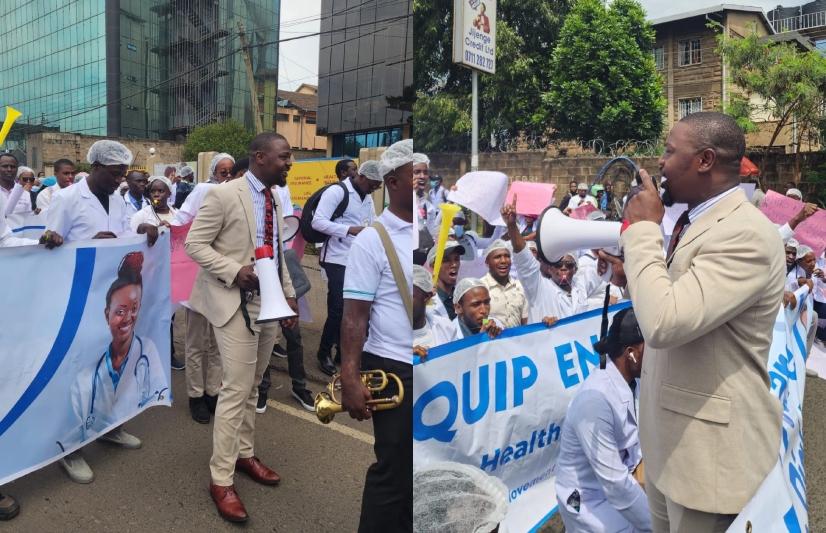Morals beat economics in State, doctors row

If there is a war governments worldwide will never win in the eyes of the public and the global community, it is the war that pits them against workers’ rights.
Authoritarian governments may subdue or exploit workers but are obligated to give them their basic rights in return for their valuable labour, or else face industrial action.
Workers are frontline soldiers for citizens of all countries engaged in the war to build good governance and State and corporate accountability. Workers represent the people rising to reclaim the value they create from being undemocratically taken away by capitalist forces.
With their elected representatives mostly perceived to be in bed with the State and capitalist forces, workers are fighting on behalf of helpless citizens. They are leading the war for their rights and the people’s universal issues of human rights.
The war is even more difficult for obstinate governments to win when it involves workers in literally the “life and death sector” – health workers and medical practitioners.
It’s the situation the State finds itself in (not for the first time) today as it tries to wiggle out of an agreement it entered into after surrendering in an earlier war against doctors.
So as the doctors’ strike enters the second month, the government must know the futility of expecting to win a moral war using a high-handed and unconvincing economic weapon.
In challenging the Kenya Medical Practitioners, Pharmacists and Dentists Union, the State has already lost both the moral and economic battles in the public domain. This comes after the antagonism created by the Finance Act, 2023, the tax burden, and the high cost of living.
The government should raise the white flag and meet with doctors and health workers’ unions to conclusively discuss how best to abide by the legally and constitutionally binding agreement signed in 2017.
It’s insensitive for the State to invoke frivolous economic theories on job categories and salary structures for doctors who have endured the most rigorous and lengthiest of all academic professions to save lives.
Ask anybody in the streets or village who between doctors and elected public officials deserve the best remuneration, they will answer it is the doctors.
Wananchi are in pain economically and health-wise. Patients cannot get medical services in public hospitals. People are dying from lack of attention as doctors demand due rights while the State insists on a painful economic pill.
Matters have been aggravated by the stinking fertiliser scandal that has left thousands of farmers in agony, further casting the State in a bad light.
The war for workers and human rights conquers vested interests or economic postulations. It’s a war the State cannot win through intimidation, imposing unjust economic policies, or unleashing police against workers exercising their rights.
Government operatives must remember workers’ rights are entrenched in the Constitution, the Universal Declaration of Human Rights (Articles 23 and 24, 1948), and the International Covenant on Economic, Social and Cultural Rights (1966).
Doctors on strike must fully exercise their inalienable constitutional and human right to the enjoyment of just and favourable conditions of work.
They must fight for their right to remuneration which provides all workers, as a minimum, with fair wages and equal remuneration for work of equal value, and a decent living for themselves and their families.
—The writer comments on economic and governance issues
—albertoleny@gmail.com











